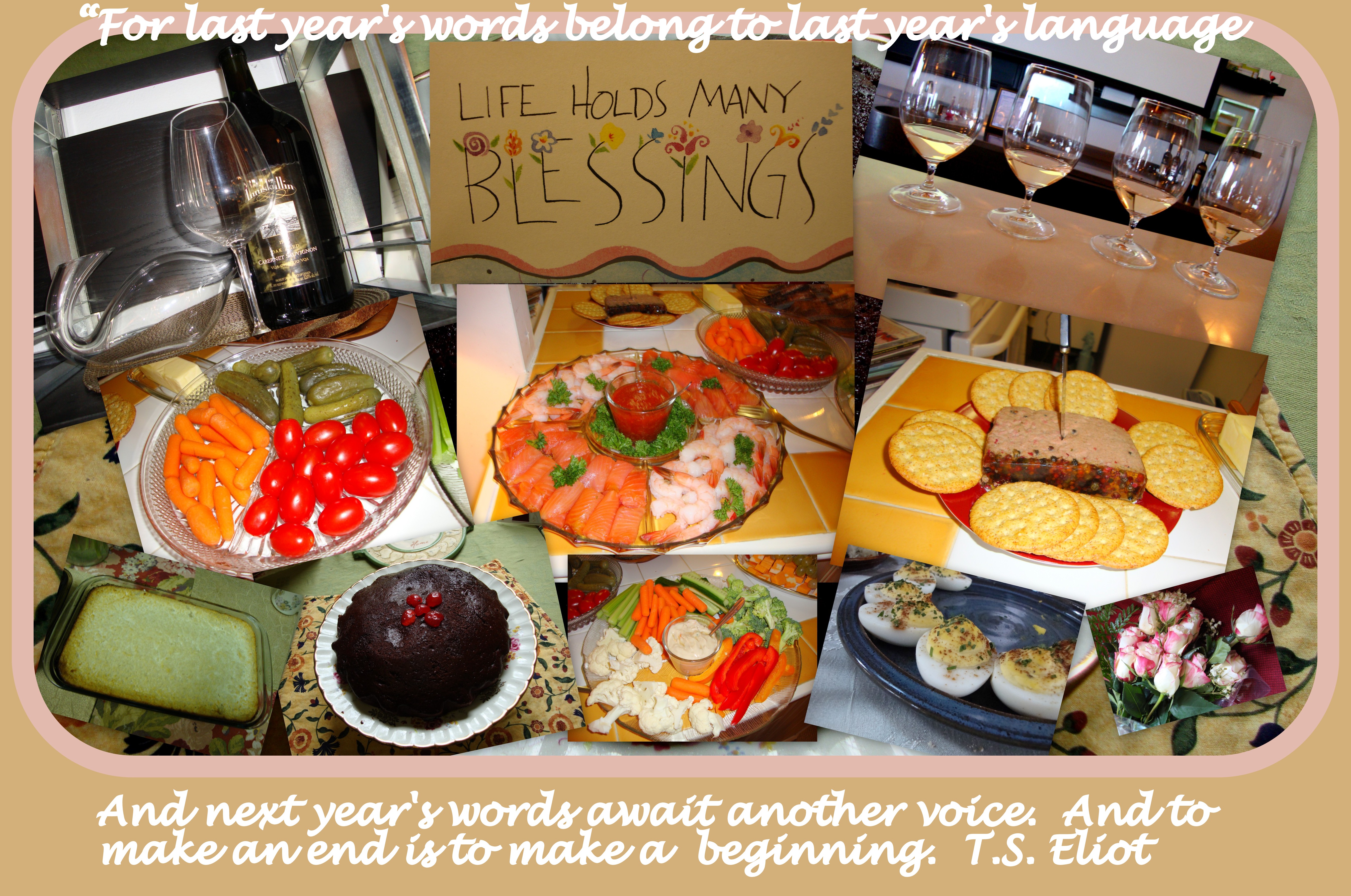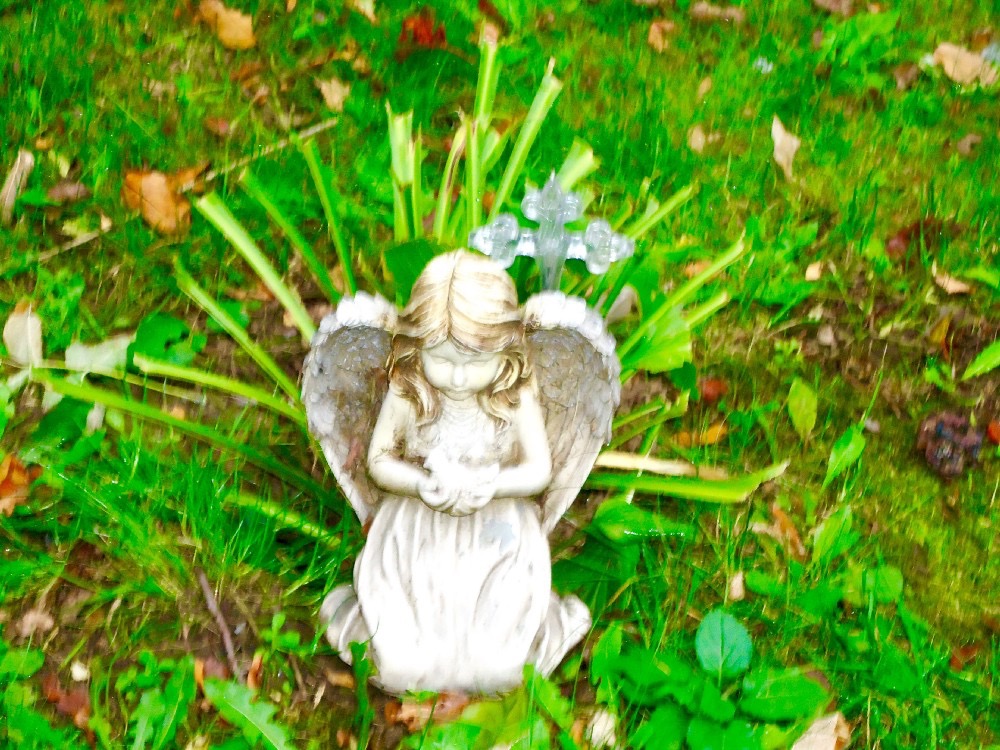As 2018 began and all the good wishes abounded for a Happy New Year, I was filled with anticipation and joy for this new beginning. There’s something about a brand new start that brings a hopefulness to one’s soul and spirit. One never knows what’s in store but hopes it will be good. In fact, the collage below is usually the one I put on my Facebook page on New Year’s Eve. When one is in good or reasonably good health and can participate in their own life and the lives of those around them, the New Year is a time of hope. Hope smiles from the threshold of the year to come, whispering ‘it will be happier’… ALFRED LORD TENNYSON

As with this journey of life though, there were a number of people I know who were not filled with that kind of anticipation. Sickness had crept into their lives and left them fearful. They didn’t know if they would live very long into the new year because they knew their lives were closing rather than beginning. They weren’t the only ones who were uncomfortable around what was happening to them. Their families were even more confused and fearful. “It is the unknown we fear when we look upon death and darkness, nothing more.” —J.K. Rowling, Harry Potter and the Half-Blood Prince

Grief is one of those emotions that is very difficult to deal with for everyone. I have felt the deep poignancy of grief many times and at different phases of my life. At those times, it seemed that I would be forever broken. However, time was kind and brought healing. I do remember my loved ones every day but without the rawness and gut-wrenching feelings of the earlier years after they were gone.

One more sunset, maybe I’d be satisfied
But then again, I know what it would do
Leave me wishing still for one more day with you
One more day
(Diamond Rio)
Two of the people I mentioned who were gravely ill died – one in early January and the other last week. I observed that my feelings at this stage of life as I felt the grief both for myself and their families, was different. I am now sixty-eight. A certain acceptance of the fact that they were ill and recovery was not going to happen, caused me to petition for them differently. They both were, I believe, ready to die. I prayed they would die peacefully, that their relationships would be healed, that they would experience forgiveness for mistakes they had made and that they would be ready when the time came. “If (or rather when) you move to death, you’ll learn its language through the educational process known as total immersion. (7)” ― Sandra M. Gilbert, Death’s Door: Modern Dying and the Ways We Grieve

A high place with a distant view.
Where we could gather for a celebration of life
and death and friendship, old and new.
I’d like a place where there would be good music,
Good food and wine – and laughter, games and fun –
And quiet talk with friends and good discussion
Of what will happen when this life is done.
– Helen Ansley –
In the case of one family whose loved one had leukaemia, they seemed to have been preparing for death long before it was imminent. My reason for writing this post is to relay how I think a family’s reaction to their loved one’s sickness and death might be a better experience for both parties. This is not expert advice but based on my own experience over the years and my observations now.
1. Find out as much as you can about your loved one’s illness. Knowing the facts can allay one’s fears greatly. E.g. there is acute leukaemia and chronic leukaemia. Acute leukaemia is more aggressive than chronic leukaemia which develops slowly. If a family knows that their loved one has chronic leukaemia, which was the case here, they know their loved one will die but that death is not imminent. All parties could have suffered less grief in this family if they had taken the time to do the research.
2. The person who is very sick or just dying of old age wants to live until they die. They want to see the people around them laughing, talking, eating, drinking, and enjoying life. They want to be part of this in as much as they can. Let each meeting (especially if you’re making a special visit to see them) be a celebration. Order pizza, chinese food, or whatever the person likes, have a few drinks, and end the time together with their favourite cake and ice-cream. Don’t wait to celebrate when they are in the coffin at the church and you go downstairs for sandwiches and tea after. They are not with you at that time.
3. If your loved one opens up a conversation about being afraid to die, how they will miss you, or about any other aspect of the dying process, see this as a precious opportunity to share with them. Many times, relatives are afraid of these kinds of conversations. Your relative will not open up to you about this unless they are very close and comfortable with you. Feel honoured.
4. Even if your loved one is using a cane, walker, or other assistive device, they are very much alive. If your loved one is disabled in any other way due to their illness or impending death, they too are very much alive. Accept them the way they have become at this stage of their life and try to be patient with their slowness, weakness, clumsiness, or any another quirk or foible. They can still enjoy (with your help and support) being alive, being with you, being with others, and activities they are able to attend or participate in. Try to make life as comfortable for them as you can. This too is a phase of their life.
5. Get all the help you can for tasks that need to be done for sick or dying loved ones. They don’t want to see you knocking yourself out to take care of them. If you are financially in a position to pay for Personal Support Workers, hire those. If they have money that is unused, take that money and pay for all the services and help they may need. They need to be well cared for while they are living. Their money is of no use to them when they are gone. Your time should be spent enjoying them, nurturing them in whatever way they need to be nurtured, and giving them your undivided attention. Your time with them needs to be quality time. E.g. if they want to look at old photos, share those with them, or if they want to go for a walk inside or outside, get a wheelchair and push them. Whatever their fancy is, indulge them. You will not regret this later.
6. Don’t get burnt-out yourself. Get adequate rest and sleep. Eat properly. If you get paid help for them, you take time to do something nice for yourself while they are being cared for. You will be refreshed and rejuvenated from having some time-off and taking care of yourself. Your loved one wants you to be healthy, happy, and well. You also want to be well for yourself and other family members you may be caring for. Take care of yourself physically, emotionally, and spiritually.
7. When the time of death arrives for your loved one, you will experience the loss acutely. If the time prior to death was pain-filled and difficult for them, you may be relieved that their suffering is over. No matter what their circumstances were, you will feel the loss. Accept all the help others offer you at this time. Continue to take good care of yourself – body, mind, and spirit. If you need to get some help with your own chores and responsibilities for a while, do it. The money you pay will be well worth it. You may even need to have a time off from work if you feel overwhelmed with all that needs to be done. Always keep in mind that your loved one who has gone never ever wanted you to be unhappy. They always wanted health and happiness for you.
8. Be patient with yourself as you grieve. Some days will be good and some days will be bad. Surround yourself with positive people. Join one of the Bereavement Groups offered by funeral homes. These usually run for a few weeks and you meet other people who are going through the same feelings as you are. Don’t compare your experience with that of others. Some people accept that death is inevitable but still miss their loved one terribly. Some people see death as the “grim reaper” and they experience the loss of their loved one in a completely different way. People with strong faith backgrounds believe their loved one is safe and those who don’t believe anything have a more pessimistic outlook. Remember that the grief process is different for everyone. Try to remember that everyone gets to experience death – sometime. Your loved one’s experience came earlier than yours.
It is my hope that some of what I’ve shared here will be meaningful to you. I’m always actively involved in my own learning and growth process around different issues and death is just one of them. In bringing this post to a close, I’d like to share a poem I came across the other day. It’s a reminder about what really matters as we live and since those of us reading this are still in the land of the living, it is for all of us.
WHAT WILL MATTER
by Michael Josephson
Ready or not, some day it will all come to an end.
There will be no more sunrises, no minutes, hours or days.
All the things you collected, whether treasured or forgotten
will pass to someone else.
Your wealth, fame and temporal power will shrivel to irrelevance.
It will not matter what you owned or what you were owed.
Your grudges, resentments, frustrations
and jealousies will finally disappear.
So too, your hopes, ambitions, plans and to-do lists will expire.
The wins and losses that once seemed so important will fade away.
It won’t matter where you came from
or what side of the tracks you lived on at the end.
It won’t matter whether you were beautiful or brilliant.
Even your gender and skin color will be irrelevant.
So what will matter?
How will the value of your days be measured?
What will matter is not what you bought
but what you built, not what you got but what you gave.
What will matter is not your success
but your significance.
What will matter is not what you learned
but what you taught.
What will matter is every act of integrity,
compassion, courage, or sacrifice
that enriched, empowered or encouraged others
to emulate your example.
What will matter is not your competence
but your character.
What will matter is not how many people you knew,
but how many will feel a lasting loss when you’re gone.
What will matter is not your memories
but the memories that live in those who loved you.
What will matter is how long you will be remembered,
by whom and for what.
Living a life that matters doesn’t happen by accident.
It’s not a matter of circumstance but of choice.
Choose to live a life that matters.

